
The Trump administration has made repeated threats this week to stem Harvard University’s funding, worth billions of dollars, for refusing to enact anti-DEI and other initiatives the government is demanding of universities across the country.
Since January, dozens of universities have faced scrutiny over alleged civil rights violations, citing allegations of antisemitism and opposition to DEI initiatives.
On March 14, the Department of Education announced investigations into more than 50 universities over race-based admissions and scholarship programs. Days before, it sent letters to more than 60 institutions warning them about enforcement actions.
Harvard faces more than $2 billion in funding freezes and other penalties after it defied demands for changes. While Harvard has received the most attention this week, it is among a growing group of elite universities facing billions in cuts to their funding over ideological demands from the White House.
Newsweek has contacted a White House representative via email for comment.
Harvard University

JOSEPH PREZIOSO/AFP via Getty Images
Harvard has attracted the most attention recently for refusing government requests to dismantle DEI initiatives, enact a ban on face masks, limit campus protests and review bias in its academic departments. In response, the Trump administration froze $2.2 billion in federal grants and threatened to abolish its tax-exempt status.
In an angry attack this week on social media platform Truth Social, Trump wrote: “Harvard can no longer be considered even a decent place of learning, and should not be considered on any list of the World’s Great Universities or Colleges. Harvard is a JOKE, teaches Hate and Stupidity, and should no longer receive Federal Funds.”
Harvard President Alan Garber wrote in an open letter: “The University will not surrender its independence or relinquish its constitutional rights. No government—regardless of which party is in power—should dictate what private universities can teach, whom they can admit and hire, and which areas of study and inquiry they can pursue.”
Newsweek has contacted media representatives for Harvard via email for comment.
Harvard has continued to receive threats from the Trump administration. CNN reported on Wednesday that the Internal Revenue Service was making plans to rescind the university’s tax-exempt status, while Homeland Security Secretary Kristi Noem announced the cancellation of two DHS grants worth $2.7 million.
Columbia University
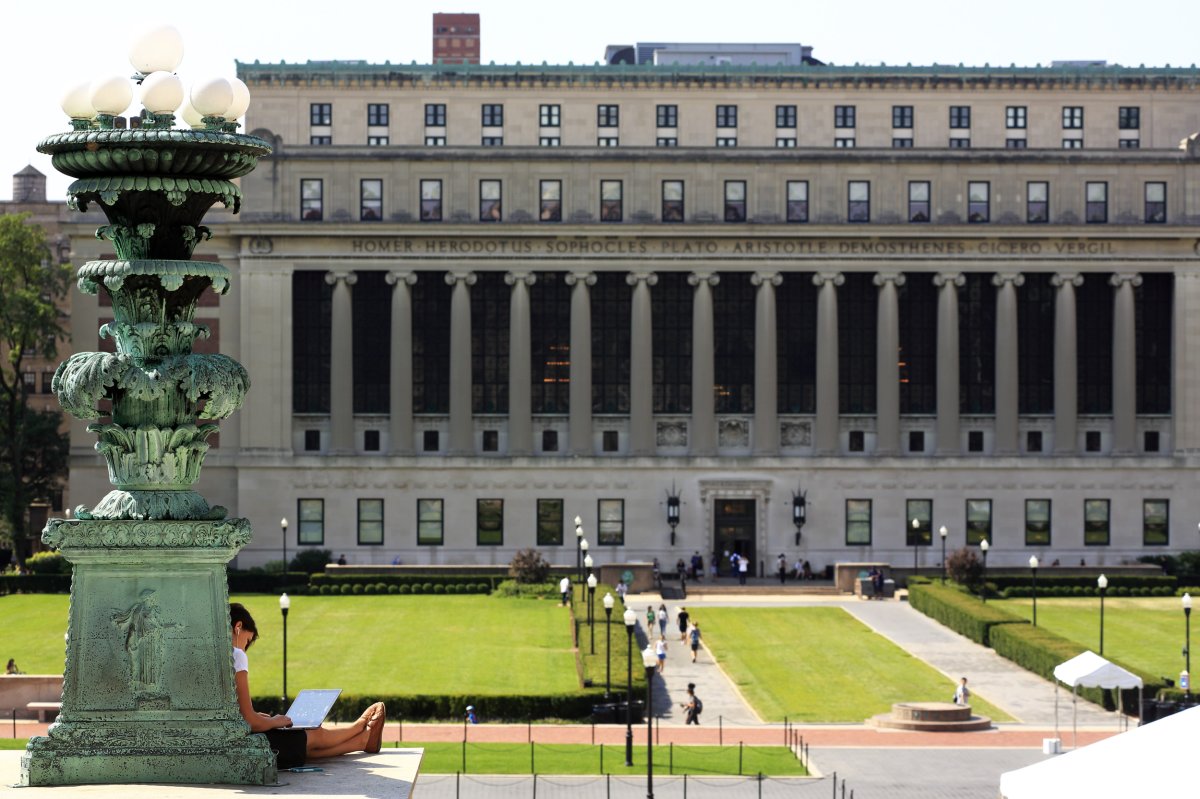
Bruce Yuanyue Bi
Columbia has also attracted attention, but for different reasons. It faced criticism for implementing government changes to protect $400 million that the Trump administration threatened to take away.
It announced it would adopt changes, including banning masks that conceal identity and hiring 36 campus officers with the power to remove or arrest people. It also agreed to hire a new senior vice provost to review “programs in regional areas across the University, starting immediately with the Middle East,” then-interim Columbia University President Katrina Armstrong said in a statement.
Staff at Columbia’s Irving Medical Center and the Morningside campus rallied this week to protest Columbia’s agreement with the Trump administration, as reported by its student newspaper, Columbia Spectator.
Asked for comment, a Columbia spokesman referred Newsweek to a statement by Claire Shipman the new acting president. Shipman said the university had been engaged in “good faith discussions with the Federal Task Force to Combat Antisemitism” and had sought to “address allegations of antisemitism, harassment, and discrimination on our campuses, and provide a path to restoring a partnership with the federal government that supports our vital research mission.”
University of Pennsylvania
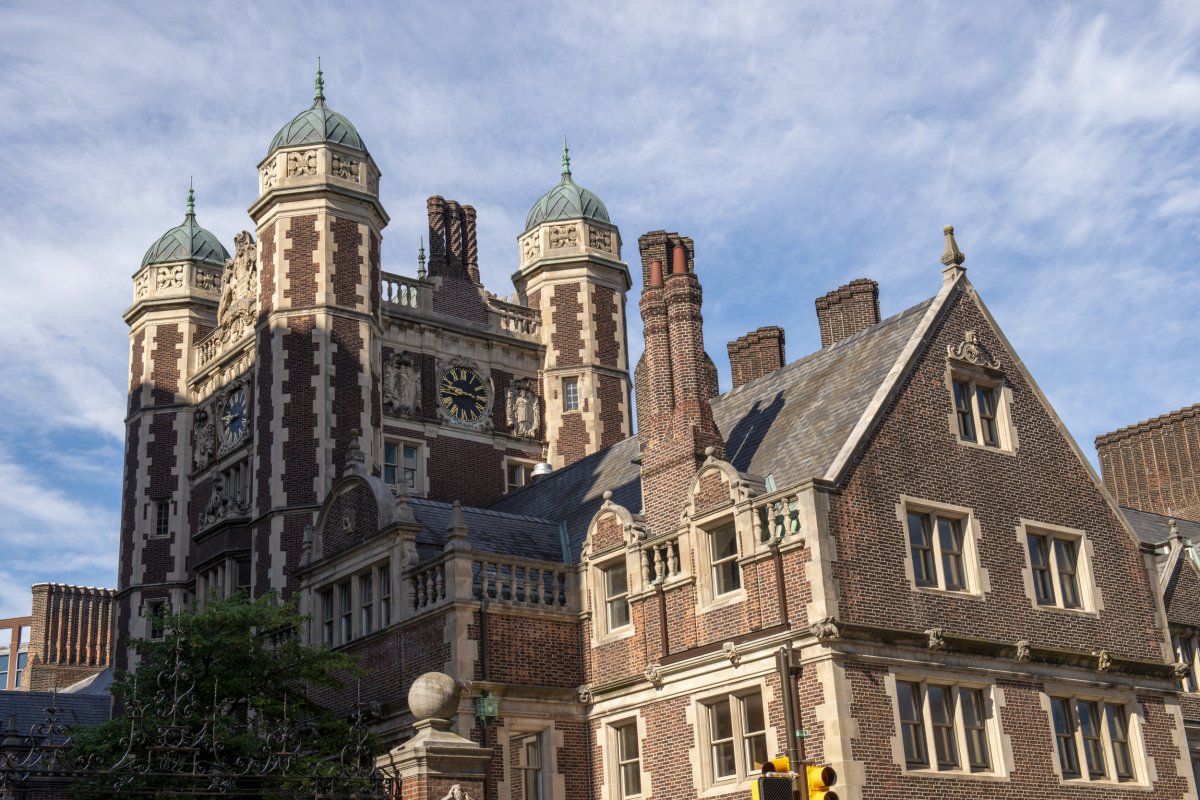
aimintang
In March, the Trump administration froze $175 million in federal funding to the University of Pennsylvania, citing policies that allowed trans women to compete in women’s sports. Executive Order 14201, signed in February, banned transgender women from competing in women’s sports, with Penn one of the first schools affected.
The university said faculty across seven of its schools received stop-work orders on contracts, which included research on preventing hospital-acquired infections, protections against chemical warfare and drug screening against viruses.
When asked about funding negotiations, a university spokesperson referred Newsweek to a statement, updated on April 8, that the university was “closely monitoring federal policy changes affecting institutions of higher education and academic health systems.”
“The American higher education system is one of America’s greatest strengths,” Penn President J. Larry Jameson said. “A social contract has long enabled U.S. colleges and universities to serve individuals, communities, and government for the good of all. This contract has been a cornerstone of innovation and opportunity in our society.
“I ask every member of the Penn community to come together and do what we must: take care of one another, seek help when needed, and ensure the continuation of our critically important work. Together, we will protect and preserve what defines us as Penn.”
Princeton University
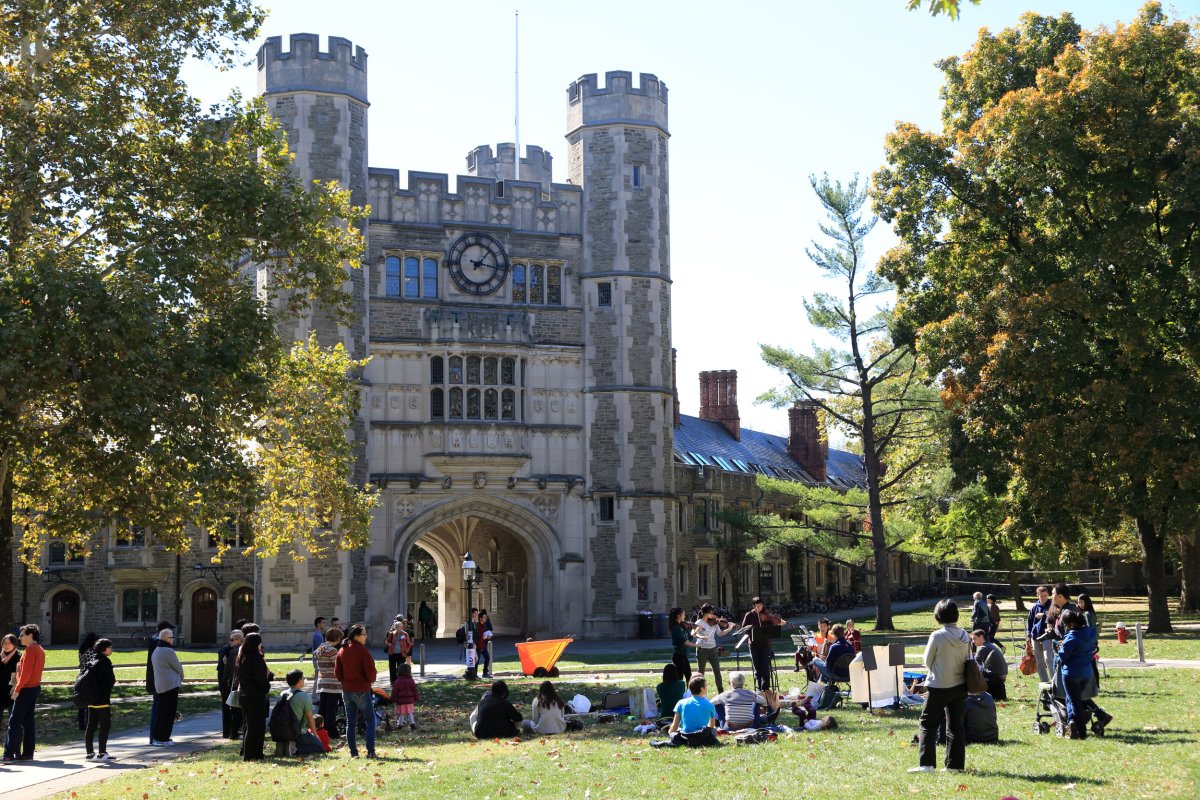
Bruce Yuanyue Bi
In early April, Princeton University announced that dozens of federal grants worth $210 million had been frozen.
Princeton President Christopher Eisgruber said in a campus letter that the school had received a notification that grants were being suspended by agencies including the Department of Energy, NASA and the Defense Department.
Eisbruger did not say at the time why the grants were being frozen but said the school would “cooperate with the government in combating antisemitism.”
Newsweek has contacted a media representative at Princeton via email for comment.
Cornell University and Northwestern University
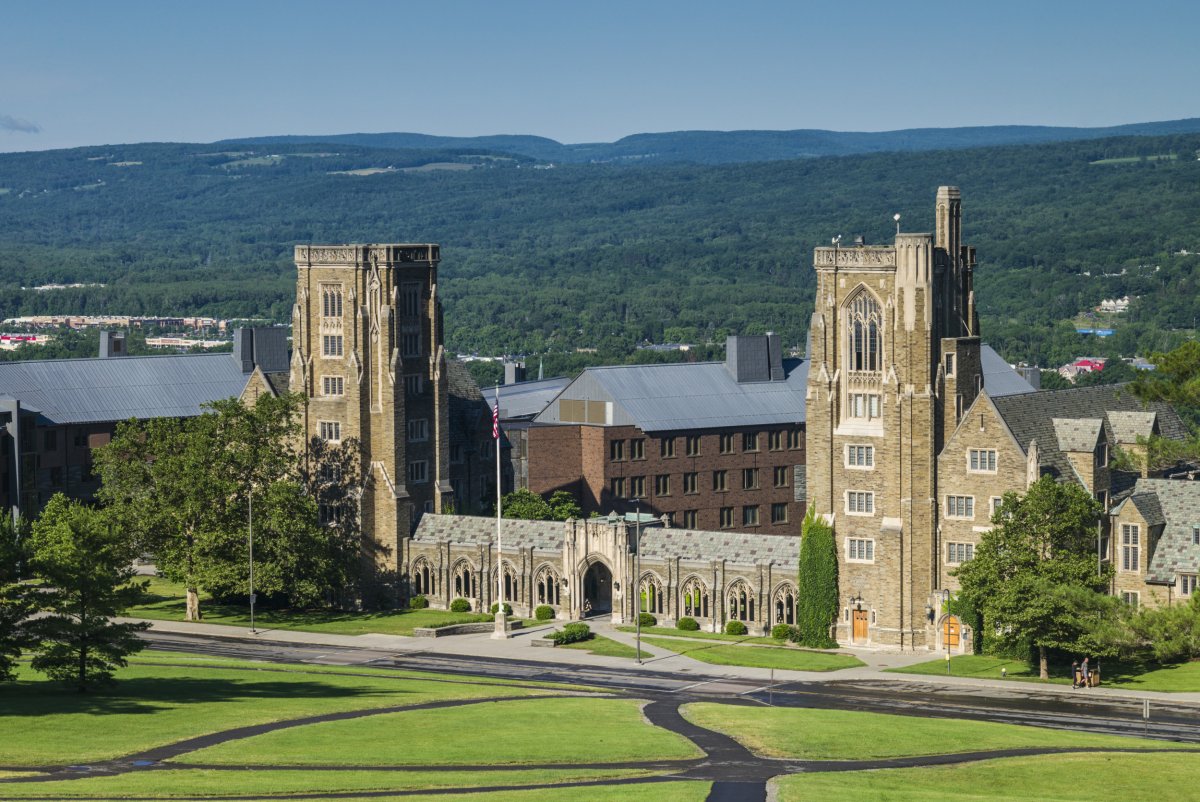
Walter Bibikow
Around the same time as Princeton, White House officials confirmed it had frozen a combined $1.79 billion in funding for Cornell and Northwestern, as reported by the Associated Press and Reuters.
Cornell said it had received more than 75 stop-work orders on research related to national defense, cybersecurity and health. Its president, Michael I. Kotlikoff, said it was “seeking further information confirming $1 billion in frozen grants.”
A spokesperson at Cornell referred Newsweek to a statement from Kotlikoff published on April 14 announcing litigation against government cuts.
Northwestern University spokesperson Jon Yates said it had cooperated with Education Department and Congressional investigations but warned its funding for “life-saving research” was now “in jeopardy.”
Newsweek has contacted a Northwestern spokesperson via email for comment.
Brown University
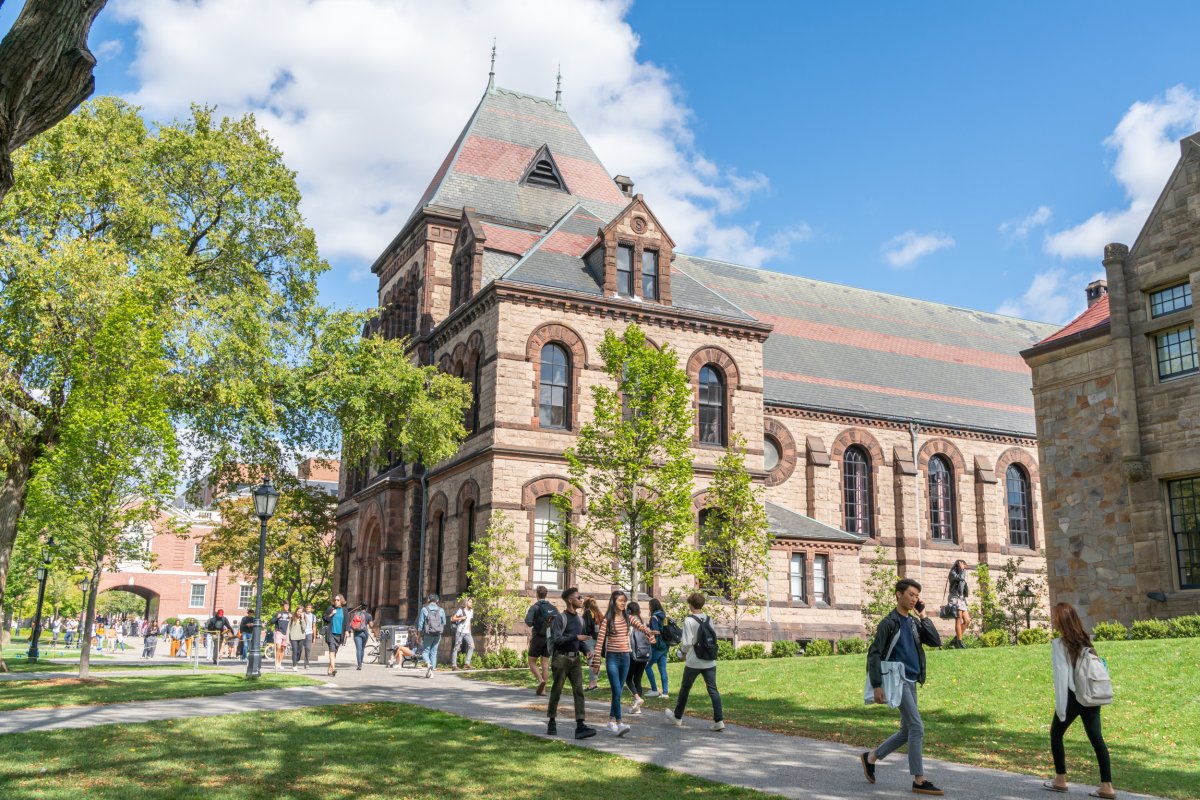
Wolterk
An unnamed White House official told student newspaper The Brown Daily Herald this month of plans to announce a $510 million freeze in federal funding at Brown.
Brown’s deputy director for news and editorial development, Amanda McGregor, told Newsweek that the school had not heard from the federal government about the large-scale grant terminations and that the university had “no information to substantiate what’s being reported.”
“There have been instances of federal research grant terminations and pauses of federal contracts, beginning in March and continuing into April, but Brown still has not received any formal notification from the federal government of the large-scale grant terminations reported in the news media since early April,” McGregor said.
McGregor said the university had been notified by the Department of Health and Human Services’ Office for Civil Rights that it had expanded a Title VI compliance review of Brown.
The university told the Daily Herald that it would be taking out a $300 million loan, citing “volatility in the capital markets and the uncertainty regarding future federal policy related to research and other important priorities of Brown.”
How Have The Colleges Responded?
While some schools mull next steps, the Trump administration faces lawsuits from multiple universities and academic associations over funding freezes.
Harvard professors have already filed a lawsuit against multibillion-dollar funding freezes. In a suit filed on April 11 in the Federal District Court in Massachusetts, the American Association of University Professors (AAUP) and the Harvard faculty chapter of the group demanded an end to the funding review on the grounds that it is allegedly coercive and unlawfully undermines academic freedom.
The AAUP urges the court to “permanently enjoin Defendants [the federal government] from using the power of the government to target and punish Harvard University for the viewpoints and speech of plaintiffs and their members.”
This week, a group of universities, including Brown, Northwestern, Princeton, Massachusetts Institute of Technology, California Institute of Technology and the University of Illinois, and higher education associations asked a federal judge in Massachusetts to immediately block a policy change aimed at reducing government spending in support of “indirect” research costs.
The Department of Energy announced it would cut an estimated $405 million in annual spending by limiting support of indirect costs of research funding to 15 percent, saying it would bring “greater transparency and efficiency” to federal government spending.
The costs are not easily attributed to single projects but include work on cancer research, infrastructure improvements and cybersecurity. The lawsuit said that if the DOE policy stood, it would have to cut staff and training.
“If DOE’s policy is allowed to stand, it will devastate scientific research at America’s universities and badly undermine our nation’s enviable status as a global leader in scientific research and innovation,” the lawsuit said.
Michigan State University, among the list of universities that have joined the lawsuit, told Newsweek that the funding was “critical.”
“Michigan State University is a national leader in energy innovation and scientific discovery, and partners with the Department of Energy to support research in areas like clean energy, plant resilience, nuclear science and advanced biofuels,” a spokesperson said.
“The 15 percent cap will eliminate millions of funding to MSU that is critical to maintaining America’s competitive advantage in areas such as energy innovation, national security, and environmental sustainability.”
Newsweek spoke with Robin Kaler, associate chancellor at the University of Illinois, which is also part of the lawsuit, who said the DOE’s policy “runs afoul of the long-standing regulatory frameworks governing federal grants and foundational principles of administrative law.”
“F&A costs are critical to funding the vital support systems for the university’s research, including the physical space, support staff, electricity and other essential infrastructure that helps to make research possible,” Kaler said.
“DOE’s policy setting a 15 percent cap on F&A costs jeopardizes research that drives new ideas for a more beneficial and prosperous future. The federal action would hinder progress, harm our national security, and threaten our competitiveness with other nations.”
Newsweek has contacted media representatives for the White House and the DOE via email for comment.
In February, the National Institutes of Health announced a similar cut to indirect research costs, prompting several lawsuits. A federal judge in Boston this month blocked the Trump administration from proceeding with the policy.





